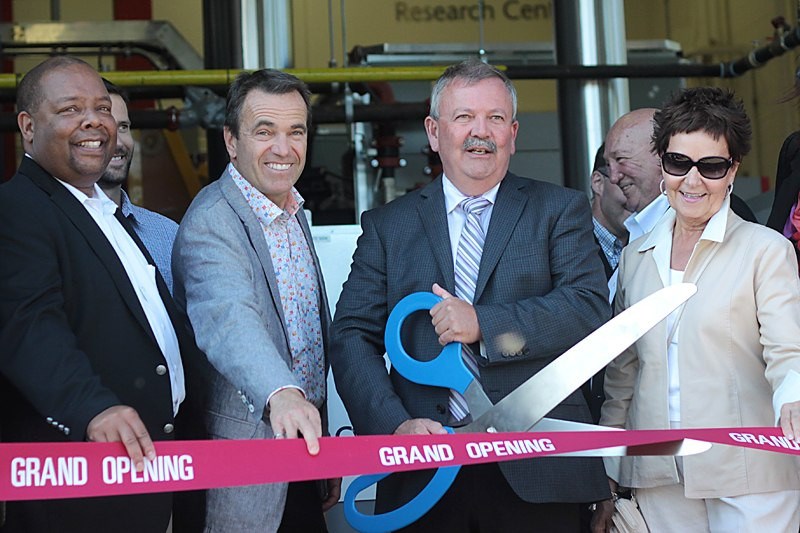THUNDER BAY – After nearly seven years of planning, Confederation College is officially home to a bio-energy research facility.
The college on Monday during a grand opening ceremony unveiled its new Ontario Power Generation BioEnergy Learning and Research Centre, a more than $6-million project that has wide reaching implications for the school, including serving as the main heating source for their main Shuniah and REACH Building.
“It’s proof of concept. It shows you can use wood power to heat a big building. It’s not just a research facility,” college president Jim Madder said.
“We’re putting our money where the actual technology is and making sure it will work, showing it is cost effective to heat the full building while at the same time doing research so other northern communities can do the same thing.”
The facility includes three boilers. Two of those will be used to provide 80 per cent of the total heat load for the Shuniah and REACH buildings this fall and winter while the third will be used for research purposes.
The cost savings from the heating component of the project will likely exceed $200,000 per year, he added.
Chris Fralick, regional plant manager for Ontario Power Generation’s Northwest operations, said the college facility, as well as the Atikokan generating station’s conversion to biomass, show biomass could play a role in addressing regional energy needs in a renewable manner.
“You can foresee a plethora of possibilities with people trying things here and maybe they work on the big scale power plant and there’s a complementary element to the two initiatives,” Fralick said.
The project also has the potential to have implications for remote northern communities and providing them with homegrown energy solutions.
Rather than importing expensive diesel fuel, biomass burners would allow the communities to meet their energy needs cheaper and more sustainably.
Madder said he knows some communities are paying close attention to the research centre to see if it is feasible for them to explore that route.
